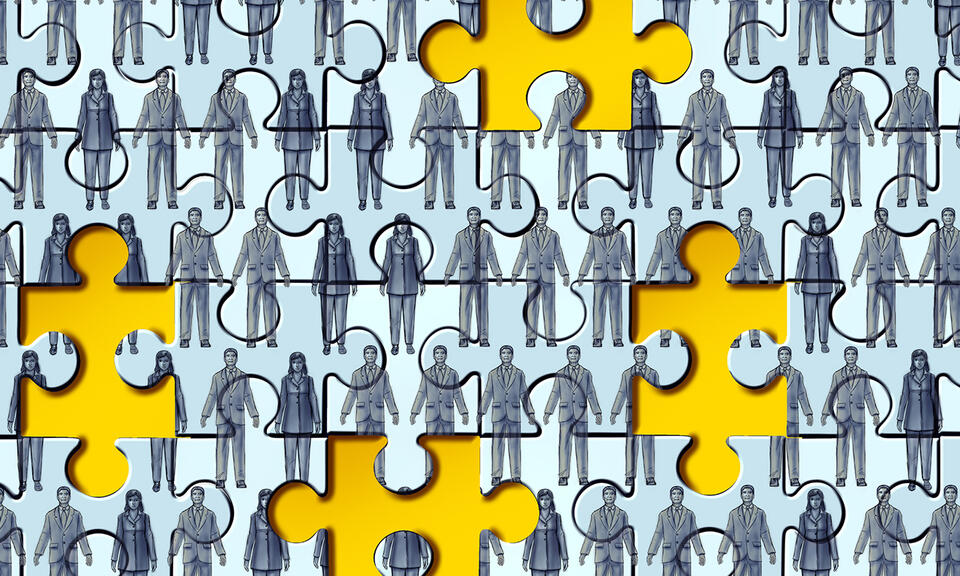Children with jobless parents are likelier to experience ill health when they become adults. Understanding how children are affected at different ages and how gender and education affect outcomes can help policymakers improve lives and cut spending.
The latest ONS labour market overview for the UK confirms that unemployment increased quarter-on-quarter to 3.8 per cent in April 2023. Across the country, around 27 per cent of households have at least one workless adult and around 14 per cent have no household members in employment. This obviously has economic implications, and research shows it has individual health implications too. Effectively, unemployment acts as a stressor, causing people’s self-rated physical and mental health to decline, and it correlates with lower healthy and overall life expectancy.
What is less well documented, however, is the effect of workless households on people’s dependents – especially their children. Our new research aims to address this gap, exploring the long-term implications of parental joblessness on children’s physical and mental health. In the context of high global unemployment and potential recession, this may help policymakers develop responses to reduce negative impacts for children, especially those who already face other forms of disadvantage.
Impacts on children
Our research split childhood into three distinct stages: early (zero to five years), middle (six to 10 years) and late (11–15 years). One of our findings was that having jobless parents – specifically fathers – during the middle stage means children are more likely to suffer mental ill-health in later life. Parental worklessness in the early stage, meanwhile, increases the likelihood a child will develop long-standing illness in early adulthood, between the ages of 18 and 33. This may be due to the ongoing impact of the early shock in the child’s life causing continuing disruptions in their family environment.
[C]hildren whose parents are less educated tend to experience the negative impacts of parental worklessness more significantly
Interestingly, we also found the same impact – increased risk of long-standing illness – in the late stage of childhood, though most likely for different reasons. As previous research confirms, at this age children may respond to a parent becoming jobless by feeling like they must take more responsibility for the household, which in turn creates pressure that can lead to worsening health. Parental joblessness for this age group also means children are more likely to start taking prescription medication during early adulthood.
Alongside these health implications, there are also broader life achievement impacts from parental joblessness. We found that children are more likely to live below the poverty threshold in later life if they experience parental joblessness at any age. On top of this, if parental worklessness happens at the early stage (zero to five), they are less likely to go on to achieve a university degree, whereas if it happens at the middle stage (six to 10) they are more likely to still be living with their parents as adults.
Distinguishing factors
While these findings are, in themselves, useful markers of how (and potentially why) children are affected by parental joblessness, it’s important to note that not all children and families are affected equally or at the same stage. In this context, we found that gender is a key determinant in how parental joblessness affects children.
Specifically, having a jobless father impacts children’s long-term mental and physical health, as outlined above, but this is not the case for having a jobless mother. This is likely to have social roots; as fathers are, on average, more likely to be the main breadwinners in a family, their workless spells have more of a financial impact. However, when both parents are unemployed (as opposed to just the father), the negative impacts for children are intensified.
[C]hildren may respond to a parent becoming jobless by feeling like they must take more responsibility for the household
Our analysis also found that children whose parents are less educated tend to experience the negative impacts of parental worklessness more significantly. This may quite simply be because losing the income from a job affects disadvantaged families more than those with savings or other sources of support. Similarly, the impacts for children are intensified in line with the number of instances of their parents being workless. Basically, the more times it happens, the more likely children are to experience more significant impacts.
Finally, we observed a distinction in terms of when children experience the negative effects of parental joblessness, finding that these impacts are more likely to occur in the later stages of early adulthood (25–33) than in the earlier stages (18–24). This may be in line with increasing social pressure to have achieved “success” by a certain age, with the perceived failure to have done so bringing up negative childhood memories and trauma.
Policy implications
Establishing the connection between parents being jobless and future negative health implications for their children has clear relevance for public policy. With common mental health problems increasing in prevalence and economic uncertainty unlikely to settle during 2023, these findings may support connected policy solutions. These might include, for example, efforts to reduce future mental ill-health among young adults through a long-term increase in support for training and employment opportunities.
Similarly, interventions aimed at specifically supporting children living in workless households may offer a significant return on investment, in terms of healthcare savings made through mitigating the impact of later mental and physical illness. Over time, this sort of targeted support for disadvantaged households may help to stop parental worklessness from increasing factors that can make children more likely to be jobless, in turn contributing to breaking the cycle of generational poverty.
This article draws on findings from “Parental Nonemployment in Childhood and Children’s Health Later in Life” by Mario Martínez-Jiménez (Imperial London).



